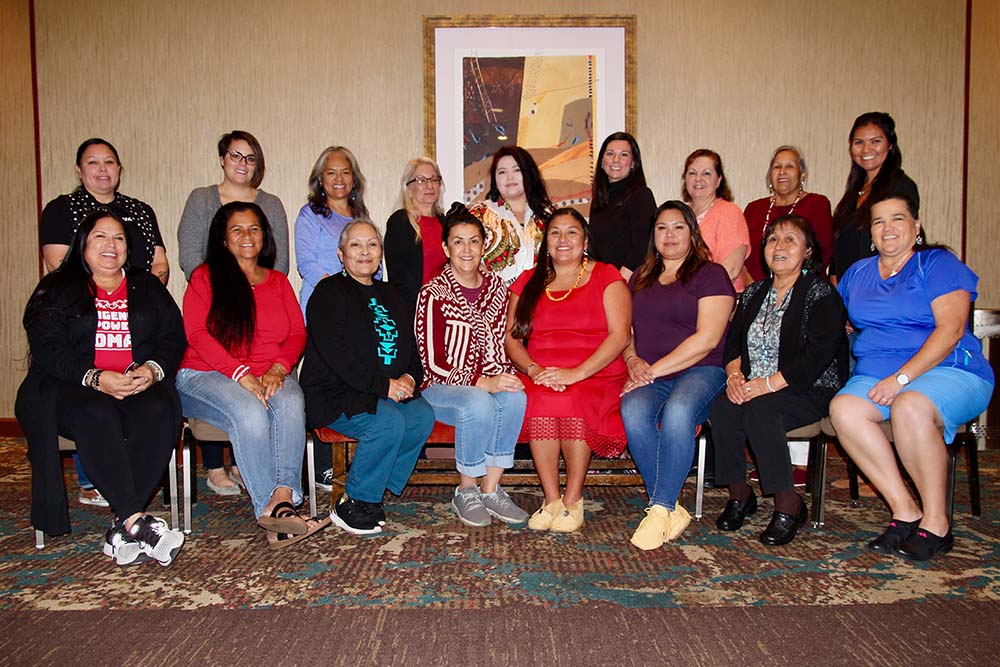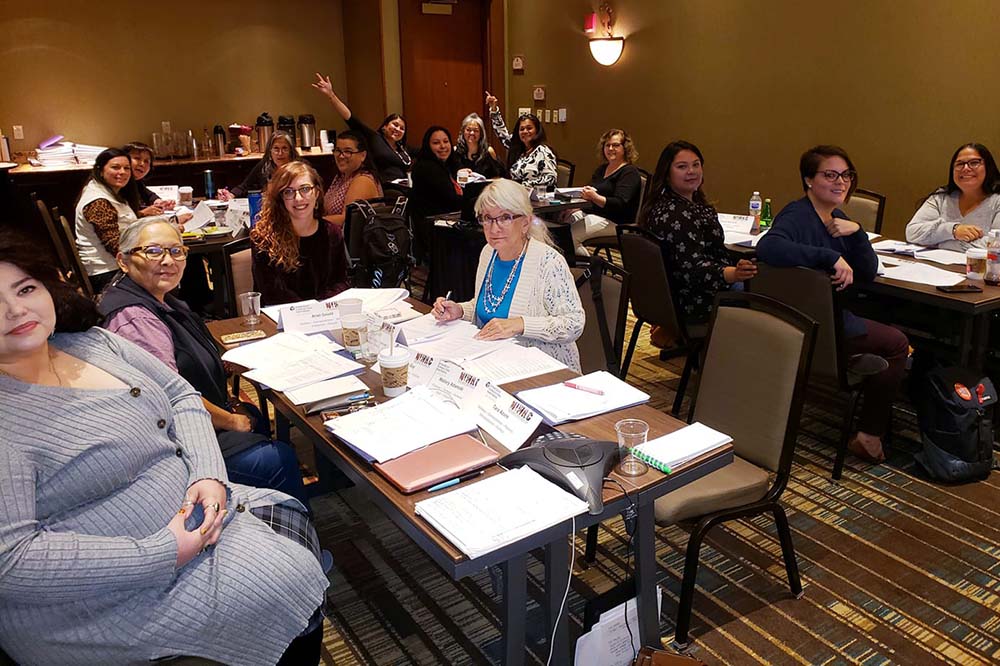
- Details
- By National Indigenous Women’s Resource Center
As we near our 10-year anniversary, staff at the National Indigenous Women’s Resource Center (NIWRC) continue to find ourselves humbled and inspired each day by the strength and efforts put forth by survivors, Tribal leaders, Tribal programs, and grassroots advocates working to end violence in Indigenous communities. This strength is a true testament to the courage and bravery of Indigenous people in developing culturally based responses and solutions to this crisis of violence against Native women and their children.
For the past decade, NIWRC has worked to provide national leadership to help end violence by lifting the voices of Tribal nations and Native women. Collectively, our efforts have helped renew attention for and provide resources in response to violence against Native women and children, as well as call for the reauthorization of critical legislation including the Violence Against Women Act (VAWA) and the Family Violence Prevention and Services Act (FVPSA). We invite you to connect with our work by joining our mailing list and help us celebrate 10 years of this important work later this year.
Supporting the Movement for Safety of Native Women
As the movement gains ground in raising awareness of the issues of violence in Indian Country in the media, the public, and among policymakers, we are continuing our work alongside Tribal Nations and grassroots advocates to ensure the federal response is grounded in addressing the root causes of violence against Native women: colonization and genocide.
This is a critical time in the movement, as we look to securing VAWA reauthorization to ensure critical resources for tribes to implement VAWA and necessary lifesaving amendments to enhance tribal sovereignty and safety for Native women. We are also working with policymakers on the reauthorization of the FVPSA–legislation that includes funding for core domestic violence shelter and supportive services and important tribal amendments to increase services and technical assistance.
 The staff and board of directors for the National Indigenous Women's Resource Center at a Staff and Board Retreat in Albuquerque, New Mexico, in 2019. (Credit: NIWRC.)
The staff and board of directors for the National Indigenous Women's Resource Center at a Staff and Board Retreat in Albuquerque, New Mexico, in 2019. (Credit: NIWRC.)
We continue to work with policymakers on important legislation to address the ongoing crisis of missing and murdered Indigenous women and girls (MMIWG). In Indigenous communities, we understand MMIW has deep roots in colonization. Inhumane federal Indian policies have resulted in the loss of Indigenous lives and diminished the inherent sovereign authority of Indian tribes. Our work at NIWRC involves bringing awareness to MMIW and advocating for the end of this horrific crisis. With Native women and tribal voices leading the way, we can put an end to the crisis of missing and murdered Native women in this generation.
Connect With Us
NIWRC offers culturally grounded resources, technical assistance and training, and policy development to support Native advocates and survivors, and tribal governments in prioritizing the safety of Native women and their children and requiring accountability of offenders and communities. This includes highly specialized and culturally specific training, advocacy, and programmatic and policy development in the areas of intimate partner violence, sexual violence, missing and murdered Indigenous women and girls, stalking, and sex trafficking.
To connect with our team for technical assistance, information, or a consultation, please submit a request on our website. We also encourage you to explore our Resource Library for webinars, resource materials, awareness resources, and training curriculum–some of which are available for order through our online store.
Our Policy Center is also a great information resource on the latest legislative updates and policy resources including our magazine, Restoration of Native Sovereignty and Safety for Native Women, a publication dedicated to informing tribal leaders, advocates and communities of emerging issues impacting the safety of American Indian and Alaska Native women.
We also encourage our relatives to join the movement and follow with NIWRC on social media:
- Facebook: facebook.com/niwrc
- Twitter: @niwrc
- Instagram: niwrc
Here at NIWRC, we are feeling renewed hope and confidence in the work and actions that lie ahead. Change is possible, and we look forward to continually working alongside our survivors, grassroots advocates, and tribal communities in this work. We are with you each step of the way.
Help us defend tribal sovereignty.
At Native News Online, our mission is rooted in telling the stories that strengthen sovereignty and uplift Indigenous voices — not just at year’s end, but every single day.
Because of your generosity last year, we were able to keep our reporters on the ground in tribal communities, at national gatherings and in the halls of Congress — covering the issues that matter most to Indian Country: sovereignty, culture, education, health and economic opportunity.
That support sustained us through a tough year in 2025. Now, as we look to the year ahead, we need your help right now to ensure warrior journalism remains strong — reporting that defends tribal sovereignty, amplifies Native truth, and holds power accountable.
 The stakes couldn't be higher. Your support keeps Native voices heard, Native stories told and Native sovereignty defended.
The stakes couldn't be higher. Your support keeps Native voices heard, Native stories told and Native sovereignty defended.
Stand with Warrior Journalism today.
Levi Rickert (Potawatomi), Editor & Publisher
